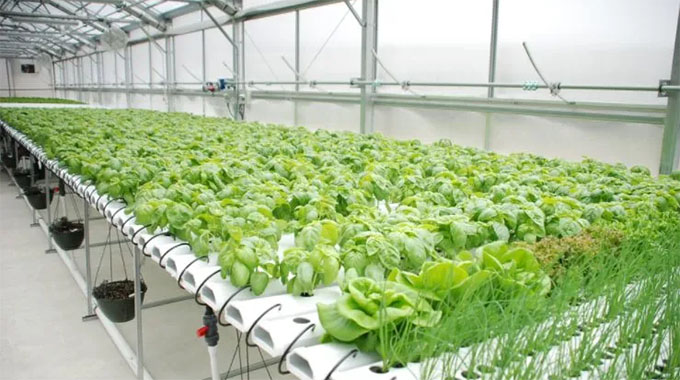128 receive training on greenhouse farming

Ashton Mutyavaviri
WORKING closely with Government, a local firm — Total Farm Solutions is training farmers across the country to grow horticulture crops such as cucumbers, tomatoes and pepper under greenhouse conditions.
Total Farm Solutions director, Mr Tapiwa Mugabe yesterday said the company had trained 128 farmers from January this year to date. Last year the company managed to train 920 farmers.
He urged farmers to turn into greenhouse farming as a viable alternative.
Various crops are grown in greenhouses while making use of the controlled growing conditions and capacity to boost yields and ensure food security in the face of unpredictable weather patterns.
Added Mr Mugabe: “Most indeterminate varieties grown in greenhouses a have a strong and vigorous root system, which is responsible for translocating nutrients, water and also providing a support base for the plants.”
Greenhouse farming helps to conserve water by reducing evaporation and enabling efficient irrigation systems. Through the use of drip irrigation and any other water saving-techniques, farmers can ensure that crops receive adequate moisture without wastages, leading to improved water resource management.
Drip irrigation systems can also bring in the fertigation system that enables the application of nutrients at the right time and place. Incidences of leaching are thus minimal in the greenhouse.
It has become increasingly popular in Zimbabwe as a means of providing a consistent income and addressing food insecurity in the country.
With poor rainfall affecting traditional farming methods, many Zimbabweans have turned to greenhouse farming, as a viable alternative. Greenhouses are now being set up in both urban and suburban areas, allowing amateur farmers to grow produce and sell it in local markets.
Greenhouse farming offers several advantages in the Zimbabwean context. It allows farmers to control the growing environment, including temperature, humidity, and light, which can lead to higher crop yields.
Additionally, greenhouses provide protection against pests, diseases and extreme weather conditions, reducing the risk of crop failure.
Farmers can extend the growing season and even produce crops throughout the year when they adopt greenhouse farming.
This is particularly important in the country, where climate change has had a significant impact on traditional farming methods. By utilising greenhouses, farmers can overcome these challenges and ensure a more stable food supplies.
Lands, Agriculture, Fisheries, Water and Rural Development permanent secretary Professor Dr Obert Jiri has since described the private sector as the engine for agricultural growth.
Prof Jiri urged private sector players to collaborate with Government from research initiatives to value addition.








Comments